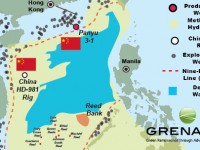He Yafei, Former Vice Minister of Foreign Affairs
Apr 07, 2016
Mutual accommodation and respect for each other’s core interests will guarantee security for all. The construction of a new regional security framework has to be based on the principle of “common, comprehensive, cooperative and sustainable security for all concerned”, as proposed by President Xi Jinping.
Nong Hong, Senior Fellow, National Institute for the South China Sea Studies
Feb 18, 2016
China's failure to appear in court demonstrates its continued position of "non-acceptance and non-participation" in the arbitration unilaterally initiated by the Philippines. This arbitration could set a precedent that undermines the true spirit of the dispute settlement mechanism of UNCLOS.
Cui Liru, Former President, China Institutes of Contemporary International Relations
Jan 20, 2016
Global developments have led China to take a more proactive approach in dealing with international issues in 2015 that saw China transition to practicing “major-country” diplomacy. As U.S.-China relations are turning more contentious and competitive, the two countries must seek convergence of common interests and avoid conflict and confrontation.

Lucio Blanco Pitlo III, President of Philippine Association for Chinese Studies, and Research Fellow at Asia-Pacific Pathways to Progress Foundation
Dec 21, 2015
Legal fixation on West Philippine Sea islands limits Philippine action and fails to take into account evolving realities and dynamics, notably increasing U.S.-China competition that blurs and shifts alliances, compelling smaller powers to be more cautious and contributing to overall regional anxiety and instability.
Wu Zhenglong, Senior Research Fellow, China Foundation for International Studies
Dec 15, 2015
Beijing’s global outlook is strategically forward-looking, inclusive and peaceful. It not only serves as the theoretical foundation for the development of China’s foreign affairs, but also helps inject fresh Chinese wisdom in building a new type of international relations.
Doug Bandow, Senior Fellow, Cato Institute
Dec 01, 2015
China and the U.S. are waging a bitter but so far nonviolent struggle in Burma. And the U.S. appears to be winning. For Burma, opening to the West was the answer; sanctions were eased, Western leaders rushed to visit, and business investment flowed in.

Sourabh Gupta, Senior Fellow, Institute for China-America Studies
Nov 26, 2015
Manilla’s arbitration requests in the South China Sea concern the standing of “historic rights”; the status of certain land features in these waters and the maritime entitlements they are capable of generating; and the lawfulness of certain Chinese land reclamation and law enforcement actions. Likely neither Beijing nor Manilla will walk away dejected, however.
Wu Zurong, Research Fellow, China Foundation for Int'l Studies
Nov 18, 2015
Mutual respect for sovereignty and territorial integrity is the basic norm of international relations. The US is duty-bound to make a careful study of China’s solemn position on this vital issue and show proper respect for China’s sovereignty instead of taking provocative actions based on contrived legal interpretations.

Richard Weitz, Senior Fellow, Hudson Institute
Nov 13, 2015
Richard Weitz reviews the recent speech of U.S. Defense Secretary Ashton Carter, who describes China’s potential to challenge the U.S.-built international order through its assertive stance in the South China Sea, and finds his approach sensible, given the mixed and fluid strategic relationship between the two countries.

Stewart Taggart, Founder & Principal, Grenatec
Nov 05, 2015
Could access to methane hydrates be behind China’s territorial aggressiveness in the South China Sea? Instead of saber-rattling, China to deploy its sophisticated technology backed by the deep pockets of its Asian Infrastructure Investment Bank to create ‘partnerships’ with the Philippines and Vietnam to develop these offshore resources